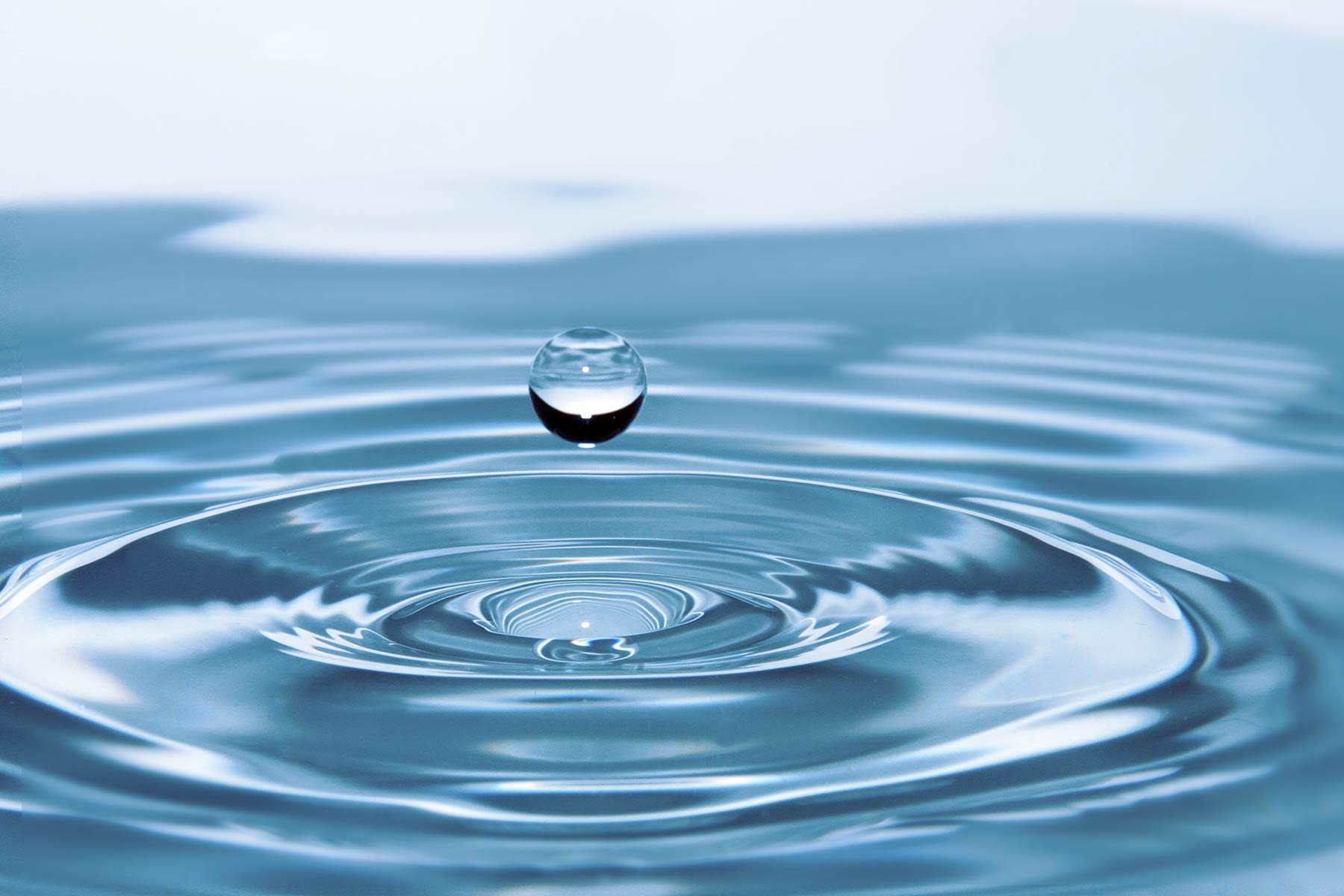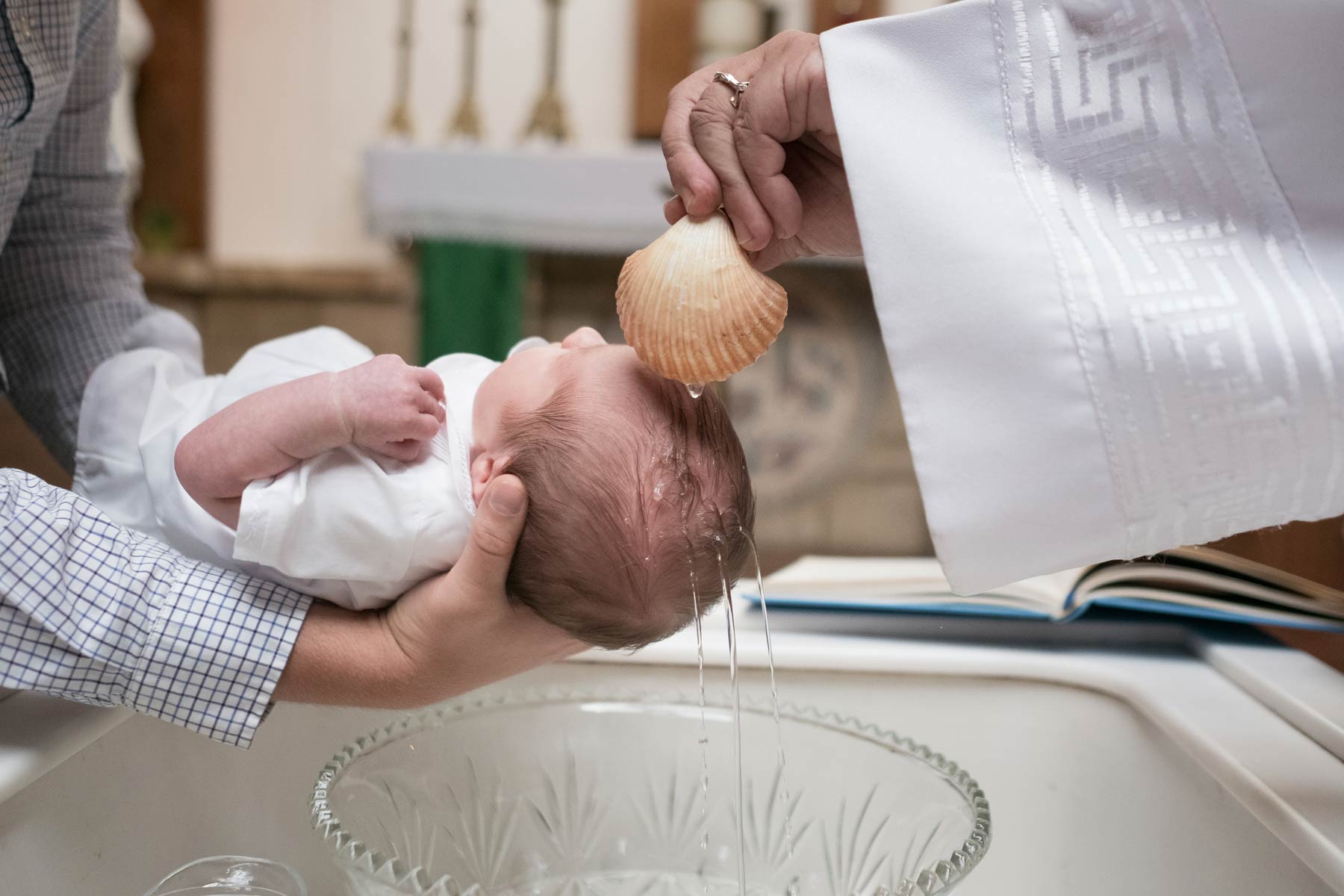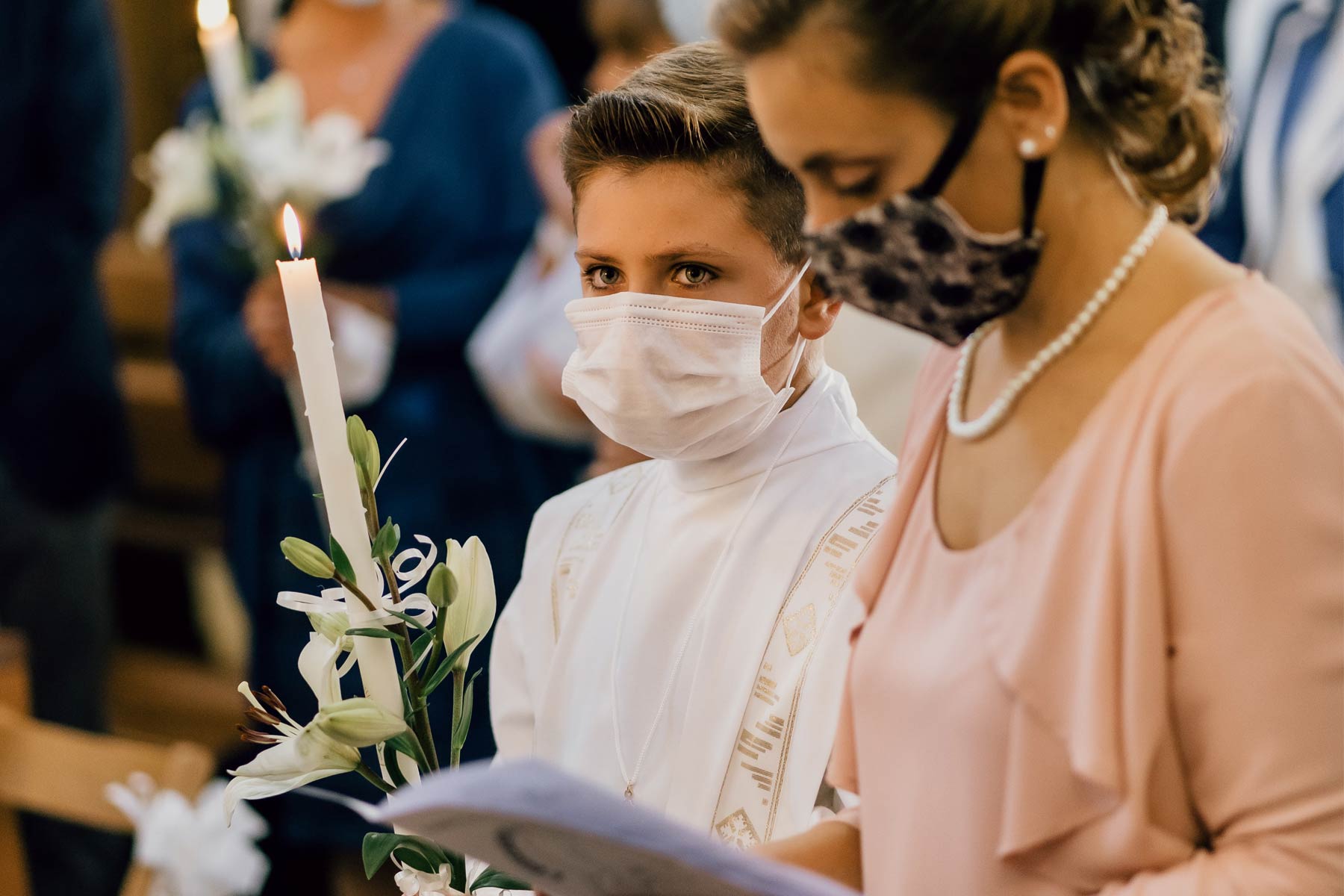The Sacraments of Initiation
Baptism, Confirmation, and Eucharist are the sacraments by which we become full members of the Church, the body of Christ. They provide the foundation for the other sacraments of the Church: the sacraments of healing (Reconciliation and Anointing of the Sick) and the sacraments of vocation (Marriage and Holy Orders).
What is Baptism?
“Holy Baptism is the basis of the whole Christian life, the gateway to life in the Spirit, and the door which gives access to the other sacraments. Through Baptism we are freed from sin and reborn as children of God; we become members of Christ, are incorporated into the Church, and made sharers in her mission: Baptism is a sacrament of regeneration through water in the word.” (CCC 1213). Through baptism, we become part of the royal, priestly people of God, called to holy lives of prayer and service. In the Catholic Church, the sacrament of Baptism ought to be celebrated communally, in the context of the Sunday Eucharist. As the great poet and Anglican divine John Donne wrote, “The church is catholic, universal, so are all her actions; all that she does belongs to all. When she baptizes a child, that action concerns me; for that child is thereby connected to that head which is my head too and engrafted into the body whereof I am a member.” The process is different in each parish as each parish is a unique family of faith.

Baptism of Young Children
0-6 Years
Most parishes celebrate baptisms of young children during the weekend Masses. First time parents/guardians and godparents are asked to participate in a Baptism preparation class to update their understanding of baptism and the important responsibilities of Christian parenting, and to learn more about the many ways our parish supports families. Though preparation differs in each parish, Parents/Guardians are usually required to be a registered parishioner or have a personal connection with a registered parishioner (e.g. grandparents are members of the parish). If a family belongs to another parish, a letter might be required from their own parish granting permission for the baptism indicating that they are registered and have participated in that parish’s baptism preparation class. Church law requires that there is at least one godparent for the child baptized. Godparents need to be active, practicing and confirmed Catholics at least 16 years in age. Godparents might need to submit written proof of registration from their parish and participate in a baptism preparation class. Only a Catholic can be a godparent because they are asked to promise to help support raising the child in the Catholic faith. A non-Catholic Christian can witness the baptism if there is one Catholic godparent. A non-baptized person cannot be a godparent or witness. See your own parish for more specific guidelines.

RCIA for Older Children and Adults
The RCIA (Rite of Christian Initiation of Adults), also called the Catechumenate, is a process of initiation into the Catholic Community of Faith for persons who are experiencing a conversion in their lives and seeking either Christian baptism in the Catholic Church or full Communion with the Catholic tradition through Eucharist and Confirmation.
It is a process that enables the study of the Gospels, Catholic Christian teaching, the acceptance of Christian values and morality, the development and deepening of a life of prayer and action with the support and involvement of the local Christian community. The RCIA is more than a course of instruction. It is a process of conversion, designed to meet the unique and individual needs of the participants.
Many parishes offer their own RCIA process but for those who do not, the Institute for Catholic Formation offers a hybrid learning opportunity that couples online learning with face-to-face formation. Even though formation takes place regionally, all rites are held at the parish.
What is Confirmation?
The Sacrament of Confirmation is, with Baptism and Eucharist, one of the three sacraments of initiation; confirmation completes and “confirms” the grace of baptism. Through the anointing with the sacred chrism the baptized person is “enriched with a special strength of the Holy Spirit,” and more than ever “obliged to spread and defend the faith by word and deed” (Catechism 1285). Adults who have not been confirmed should seriously consider preparing for this sacrament which completes their full initiation into the Catholic Church. Completion of the sacraments of initiation is strongly encouraged prior to celebrating the other sacraments, including marriage. Adult confirmation classes are available through the Institute for Catholic Formation.

What is Eucharist?
In the Eucharist, Christ nourishes the believer with the essential food, which is the sign of faith and bread of life. The celebration of Mass forms our local Church, connects us with the apostolic faith, and links us with the Church universal. All parish life revolves around the Sunday celebration of the Lord’s paschal mystery in the Eucharist. The reverence with which we offer this sacrifice of praise is an outward manifestation of the holiness of God who has taken on our flesh. The Eucharist is holy manna, food for the whole of the Christian journey. In our devout participation in the Mass, we are given a foretaste of the banquet of heaven and given a hunger for the invitation to join the Lord, the angels, and the saints around his heavenly table. Because of these powerful fruits or effects of Eucharist, the church “warmly recommends” that Catholic believers receive communion every time they attend Mass; if they have the required dispositions - that is, they are not in a state of serious sin (CCC 1388). Anyone who is aware of having sinned should celebrate the sacrament of reconciliation before receiving Holy Communion. All Catholics should celebrate the sacrament of reconciliation at least once a year. Catholics are required to take part in Mass every Sunday and Holy Day unless prevented by serious or excusing causes such as illness, travel, or weather. Catholics who are not prevented by age or medical condition are to fast from food and drink, except water (or medicine) for one hour before receiving Holy Communion. Because of the divisions in the Body of Christ, Christians from other denominations (except some Orthodox Churches in communion with the Roman Catholic Church) may not receive Holy Communion in the Catholic Church. We pray for the day when we may all be united around the one table of the Lord. At about age 7, children can begin to prepare to receive communion, the body and blood of Christ, for the first time. In conjunction with the new Archdiocesan guidelines, preparation for First Reconciliation and First Communion is a two-year process that includes preparation for First Reconciliation and culminates in the First Communion celebration, often in the spring. For adults, the reception of the Eucharist is the culmination of their Christian initiation through the RCIA Process.

